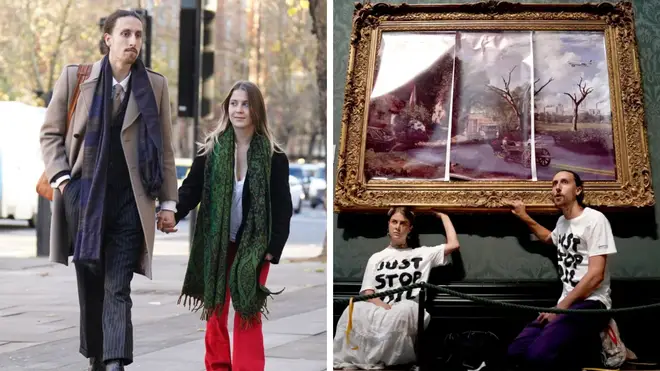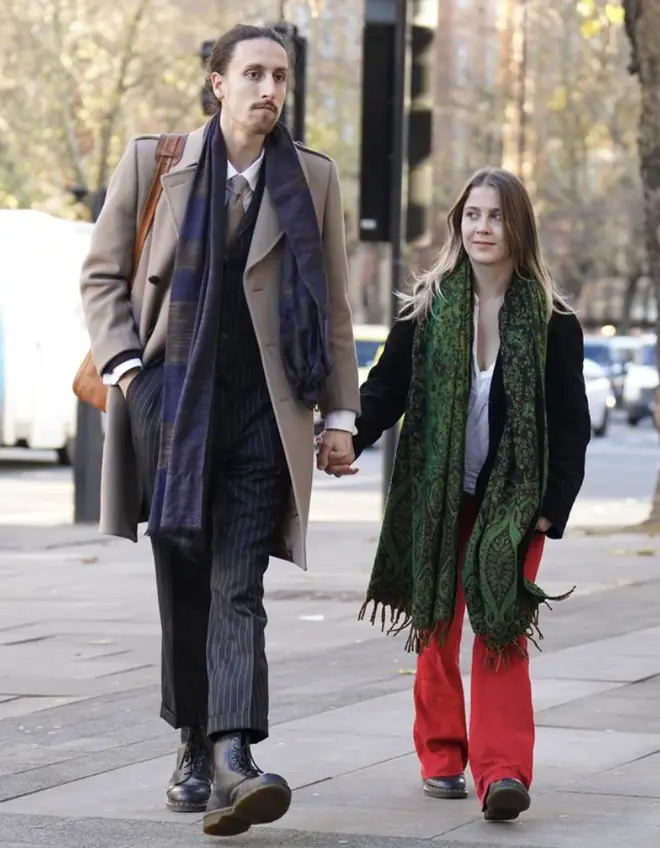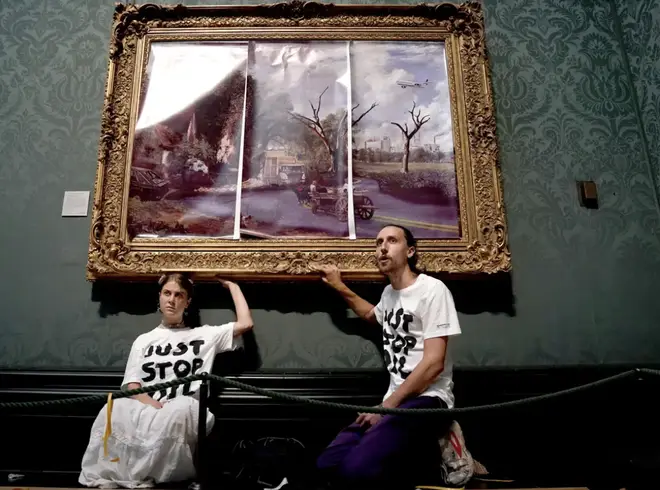
Nick Abbot 10pm - 1am
6 December 2022, 16:44

Two eco activists who covered John Constable's painting The Hay Wain with 'dystopian' posters and inflicted more than £1,000 worth of repairs have been found guilty of causing criminal damage.
Hannah Hunt, 23, and Eben Lazarus, 22, taped printed posters of a 'dystopian vision' onto the artwork before gluing their hands to its frame in the National Gallery on July 4 this year.
The Hay Wain, which was painted in 1821, shows a rural Suffolk scene of a wagon returning to the fields across a shallow ford for another load.
Hunt and Lazarus, both of Trowbridge, Wiltshire, have each been convicted by a district judge of causing criminal damage.


Read More: Man arrested after 'egg thrown at King Charles' during walkabout in Luton
They will be sentenced on a date yet to be fixed.
Their actions were associated with climate change campaign group Just Stop Oil (JSO).
In July, the pair entered the gallery with three others who distracted security officers so that the defendants could tape three printed posters of a “dystopian version of Constable’s painting” onto the canvas.
Hunt and Lazarus then glued their hands to the frame before delivering a short speech to people in the gallery.
Police arrived and arrested them after security ushered members of the public out.
The painting was taken to be restored at the cost of £1,081 and fitted with a glass sheet before it was re-exhibited the next morning.
The pair argued that Articles 10 and 11 under the European Convention of Human Rights – the rights to freedom of expression and freedom of assembly respectively – gave them lawful excuse for their actions, but this was rejected.
District Judge Daniel Sternberg said the damage caused was “significant not trivial” and that the defendants “were reckless” and caused it “without lawful excuse”.
Giving evidence during the trial, both defendants claimed they made “a deliberate effort” to avoid damaging Constable’s painting.
They said they enlisted advice from an “art expert” who told them that “low tack tape” and a small amount of glue would not cause damage to the painting or its frame respectively.
Hunt added that their actions might actually increase the value of the painting, citing an £8 million surge to the value of Van Gogh’s Sunflowers after a different JSO protest.
The court heard earlier that The Hay Wain was not itself affected but the varnish on top and the surrounding frame suffered damage.
Both protesters said they performed the action to “raise awareness” of the “severity” of the climate crisis.
Lazarus told the court that their protest received “huge” media attention.
Hunt said: “People need to hear a fire alarm.”
She added that she also aimed to “inspire others”, claiming that she “brought hope” to a group of schoolchildren who clapped and cheered in the gallery at the end of her public address.
Both protesters insisted that they had tried other methods of campaigning for their cause but with “little impact”.
The court also heard the pair engaged in non-violence training to ensure the protest was peaceful.
Hunt said she learned from previous arrests protesting at an oil terminal site and outside of Parliament in London that those areas were “too disruptive to the public” and chose the National Gallery because it would not affect traffic or people getting to work.
Hunt and Lazarus, both of Trowbridge, Wiltshire, denied the charge but were convicted of criminal damage.